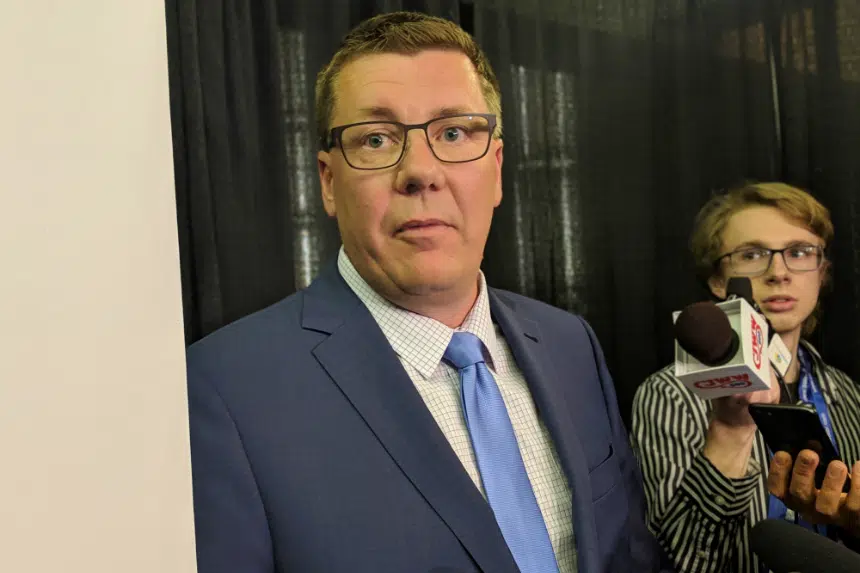Saskatchewan Premier Scott Moe announced an increase of $10 million to towns and cities across the province at the Saskatchewan Urban Municipalities Association (SUMA) annual general meeting Monday in Saskatoon.
The bump in funding stems from changes made to the municipal revenue sharing program.
Beginning next year, the formula will be based on three quarters of one point of the provincial sales tax (PST) from two previous fiscal years.
Moe said going that route was the desired option to boost funding.
“This gives all of our municipalities a reasonable lift,” he said. “It gives them that sustainability and transparency and predictability into the future.”
Those changes mean a four per cent increase in the program, which bumps the total value to $251-million.
SUMA president Gordon Barnhart was pleased to welcome the announcement especially since there are few conditions on how to spend the money.
“The municipalities very much appreciate that it’s unfettered,” he said of the financial limitations. “It’s up to the communities to (decide) how it’s spent, and I give the people of Saskatchewan the commitment on behalf of the municipalities that it will be spent well.”
Last year, Moe arrived at the SUMA convention four days after being sworn in as premier to announce a freeze to the program at $241 million.
Prior to that, the previous system was based on one point of PST revenue from the two previous years. The fund reached a high of $271 million in 2016-17, a fact that wasn’t lost on Saskatchewan NDP leader Ryan Meili.
“It’s actually significantly below what was there since 2013,” Meili said following the announcement. “We still have significant troubles for the municipalities.”
“(It) Certainly won’t make most communities whole based on previous cuts and the increased costs.”
The revenue sharing announcement was the key point in Moe’s 20-minute address to SUMA delegates.
The other was presenting a balanced budget on March 20, meaning few others can expect funding increases.
Moe said it is part of finishing his party’s three-year plan to balance the budget and reduce the province’s dependability on resource revenue.
Regina Mayor Michael Fougere said after negotiations with cities, towns and other smaller municipalities it’s good to have a clear and predictable amount of funding coming in.
“Overall we’re very pleased, it’s hard to be critical when you’re receiving a quantity of about four per cent more, so that’s good news,” he said.











